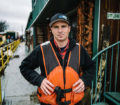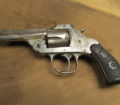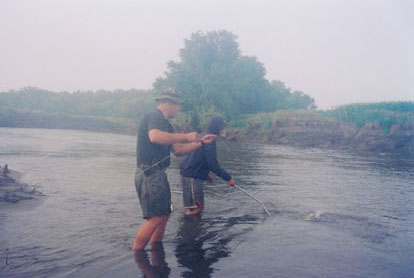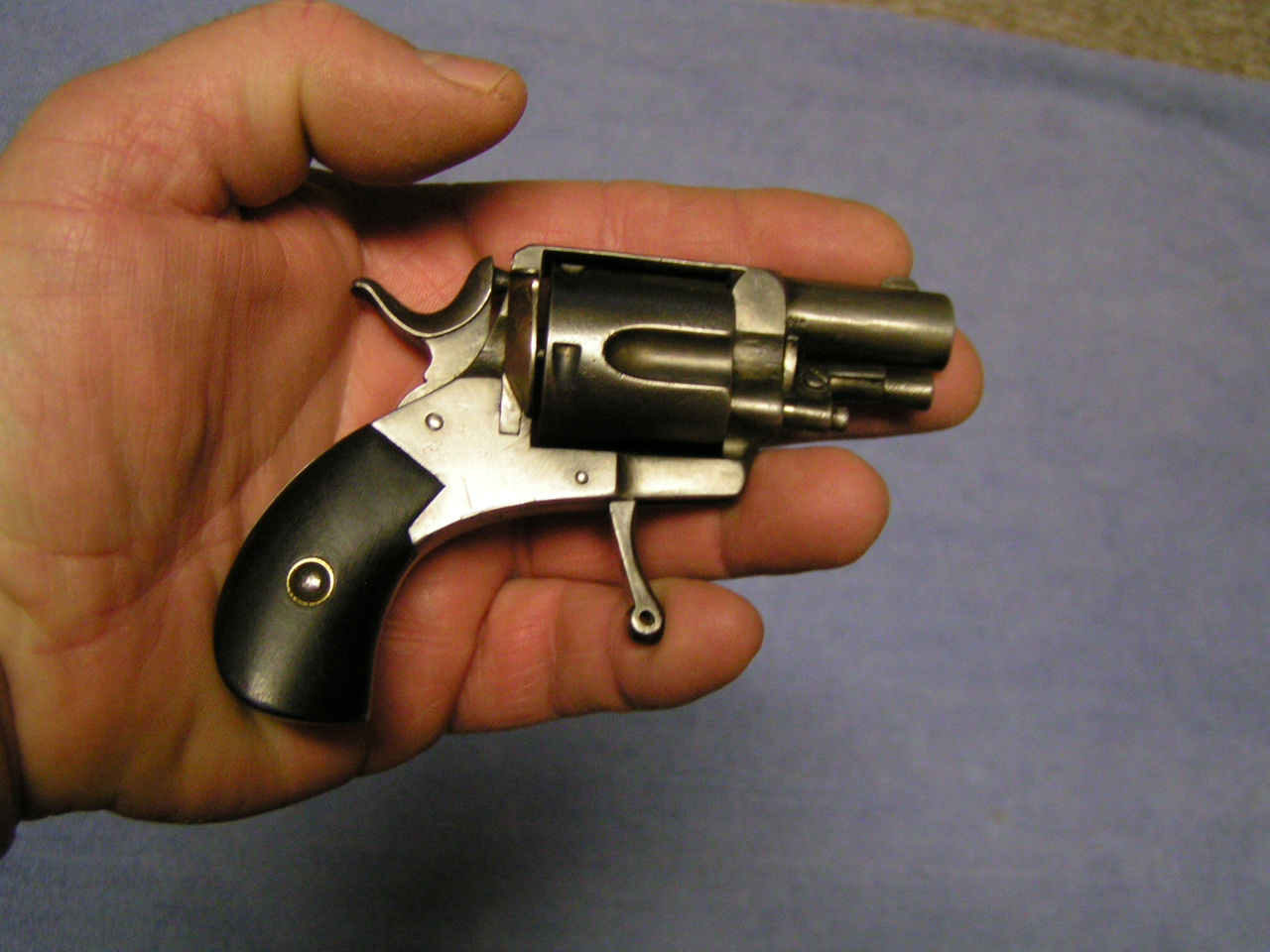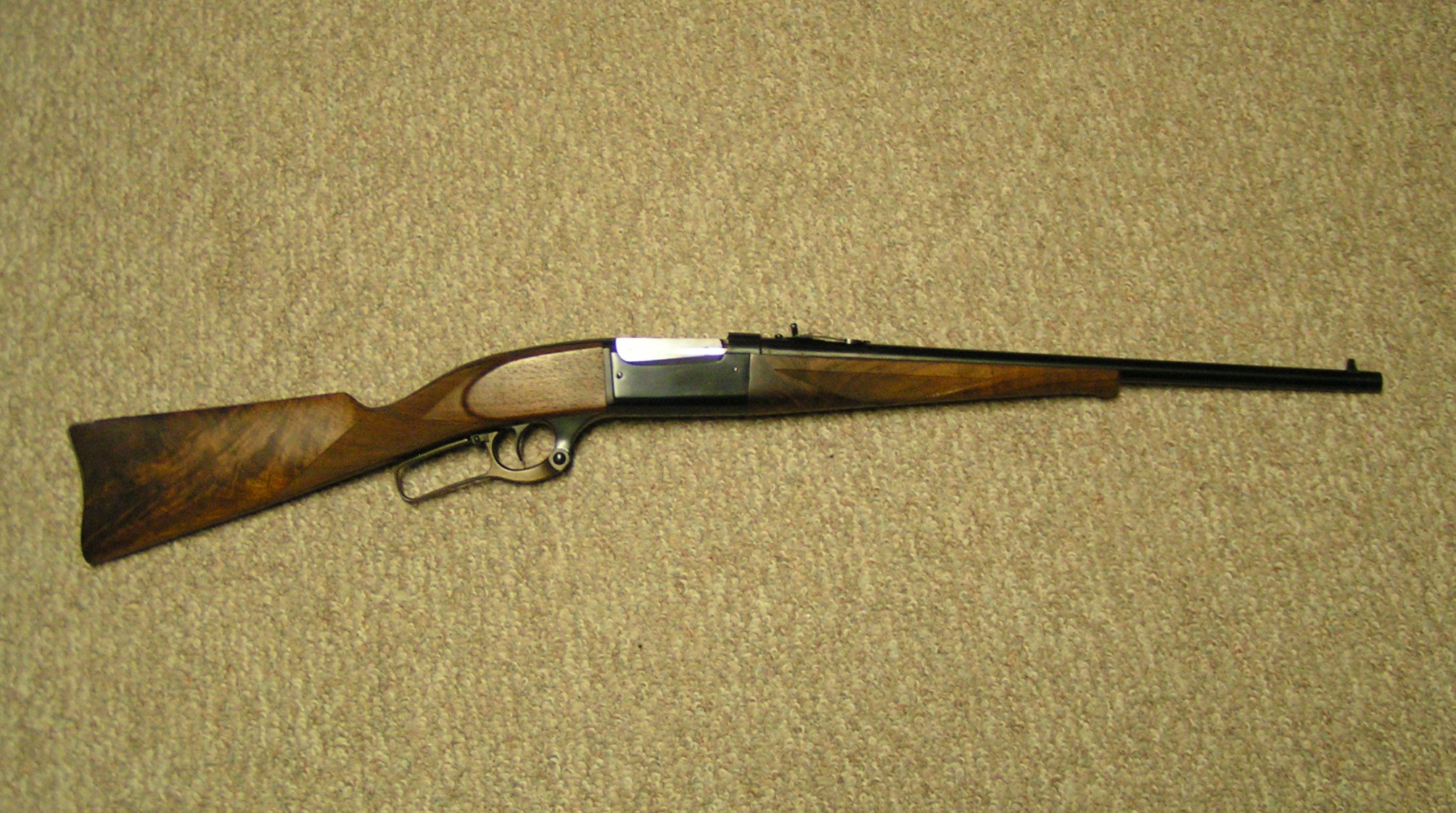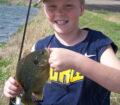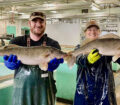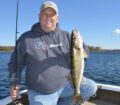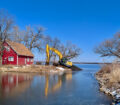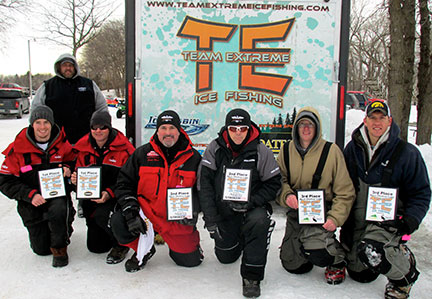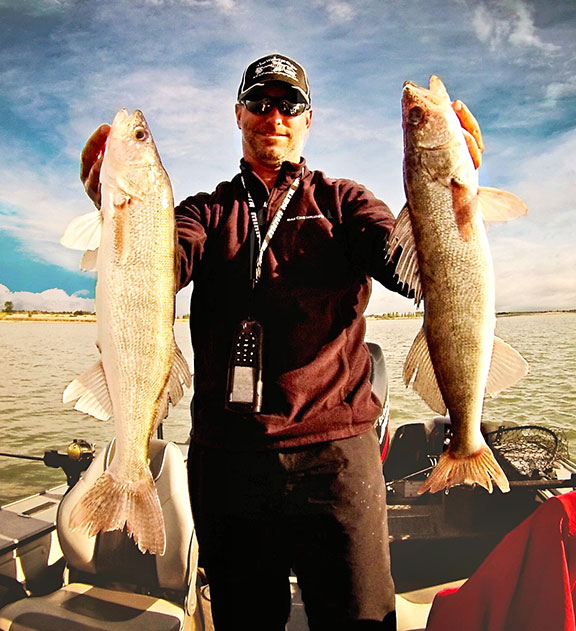By Bob Jensen
Fishing the Midwest Fishing Team
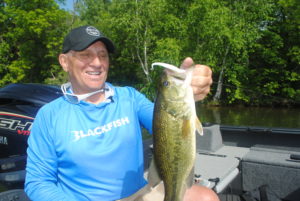
(photo by Bob Jensen) Mike Frisch with a nice largemouth bass.
If an angler wants to become a better angler, that angler needs to be willing to make changes. Becoming a better angler means different things to different anglers.
For some it means catching more fish on their home body of water. To others it means catching bigger fish on their home body of water, and to other anglers it means catching more and bigger fish on any body of water that they might visit. To do that, an angler has to be willing to expand his/her bag of fishing techniques.
Mike Frisch began his fishing lifestyle, a lifestyle that became a career, in North Dakota. Mike’s dad introduced him to fishing at a young age. They fished for walleyes, and when they moved to central Minnesota a few years later, as Mike grew, so did his interest in walleye fishing. He started competing in walleye tournaments, then bass tournaments. Next he began a guide service.
Outdoor writing was the next logical step. Mike has the soul of a teacher, and writing fishing articles and doing fishing seminars were very good vehicles for him to teach about fishing. Soon he became a member of the Fishing the Midwest Fishing Team, a small, select group of fishing educators. Mike then formed School of Fish.
School of Fish has been recognized by fishing industry insiders as the “best young angler recruitment tool in the fishing world today.” After establishing School of Fish, Mike became the owner and host of Fishing the Midwest Television. Certainly an impressive list of accomplishments in the world of fishing.
Mike was able to accomplish all of this because, as mentioned earlier, he became a better angler because he was willing to make changes in his approach to fishing. He became a more versatile angler, and by doing so, he has become one of the most recognized fishing educators in the Midwest and beyond. Here’s how that happened.
As a budding angler, Mike’s Dad Bruce fished mostly for walleyes. If Mike wanted to go fishing, he fished for walleyes. Mike was good with that. Mike and his Dad were very successful walleye-catchers. They used mostly live bait.
But upon moving to central Minnesota, Mike discovered other species of fish. Largemouth bass, smallmouth bass, and crappies intrigued him. To successfully catch these species, he had to learn new techniques. No longer were minnows, nightcrawlers and leeches part of the mix. At least not a big part. As Mike’s curiosity and knowledge expanded, he started using more crankbaits, spinnerbaits, and plastic baits. Especially plastic baits.
Through hours, days, and years of time-on-the-water, Mike learned that, much of the time, he could catch just as many fish, maybe more, with the proper use of plastics. He learned that, in many situations, a Rage Grub or Rage Swimmmer were very good walleye catchers. He learned that Mr. Crappie ShadPoles and Crappie Thunders were just as good as live minnows for crappies, and, like most plastic baits, they come in a variety of colors and require no care.
When Mike discovered that largemouth and smallmouth bass were abundant in his home waters, he also learned that these species would respond to plastics, and when he learned the nuances of selecting the proper shape, color, and size of plastic, there were always several rods on the bow of his boat rigged with various forms of plastics. In fact, and although he wouldn’t like it, if Mike were limited to one particular lure-type, it would be some form of plastic designed for bass.
Mike doesn’t hide the fact that when he’s got folks in his boat that want to catch walleyes, he brings live bait along. And he won’t hesitate to reach for it if conditions dictate such a move. But Mike will readily admit that he’s a much better angler because he was willing to move beyond a proven technique in his efforts to catch more fish. That’s good advice for any angler that wants to become a better angler. Be willing to learn new techniques so that you can catch more fish in more places more of the time.


